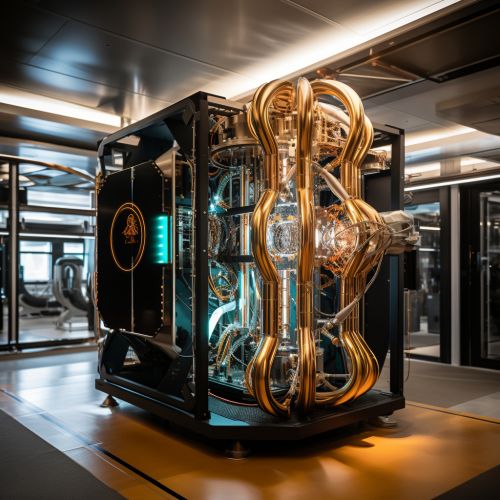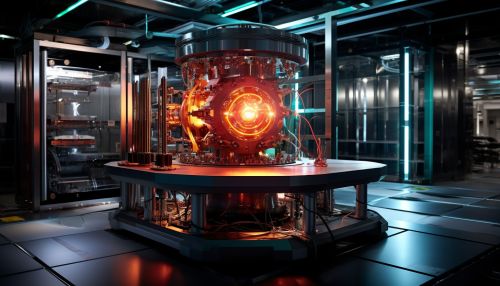Quantum Computing in Chemical Reaction Dynamics
Introduction
Quantum computing is a rapidly evolving field that leverages the principles of quantum mechanics to process information. In the context of chemical reaction dynamics, quantum computing has the potential to revolutionize the way we understand and predict complex chemical reactions. This article delves into the intricate relationship between quantum computing and chemical reaction dynamics, exploring the fundamental concepts, the current state of research, and the potential future applications.


Quantum Computing: A Primer
Quantum computing operates on the principles of quantum mechanics, a branch of physics that describes the peculiar behavior of particles at the atomic and subatomic level. Unlike classical computers that use bits as their smallest unit of data, quantum computers use quantum bits, or qubits. Qubits can exist in a superposition of states, allowing them to process a vast amount of information simultaneously.
Quantum Mechanics and Chemical Reactions
Chemical reactions are fundamentally quantum mechanical in nature. The behavior of electrons during a chemical reaction, including bond breaking and formation, can be accurately described using the principles of quantum mechanics. However, the complexity of these reactions often makes them computationally intensive and challenging to model accurately using classical computers.
Quantum Computing in Chemical Reaction Dynamics
Quantum computing offers a promising solution to the computational challenges posed by chemical reaction dynamics. By leveraging the principles of quantum mechanics, quantum computers can simulate chemical reactions with a level of detail and accuracy that is currently unattainable with classical computers.
Current State of Research
Research in the field of quantum computing and chemical reaction dynamics is still in its early stages, but significant progress has been made in recent years. Several studies have demonstrated the potential of quantum computers to accurately simulate simple chemical reactions, paving the way for more complex simulations in the future.
Potential Applications
The potential applications of quantum computing in chemical reaction dynamics are vast. From drug discovery to materials science, the ability to accurately simulate chemical reactions could revolutionize a wide range of scientific fields. However, it's important to note that these applications are still largely theoretical, and much work remains to be done before they can be realized.
Challenges and Future Directions
Despite the promising potential of quantum computing in chemical reaction dynamics, there are several challenges that must be overcome. These include the development of more powerful and reliable quantum computers, as well as the creation of efficient algorithms for simulating chemical reactions. The future of this field will likely involve a combination of continued technological advancements and innovative research.
